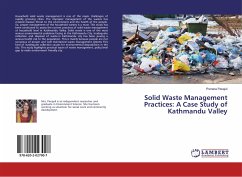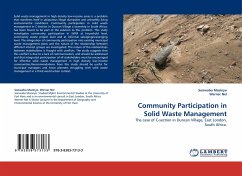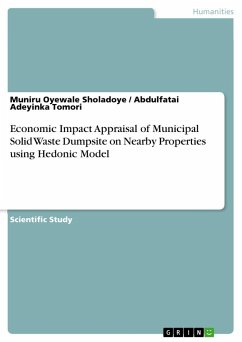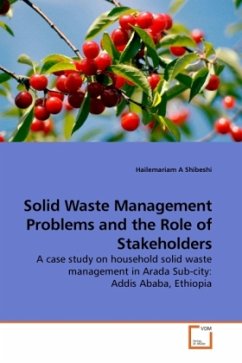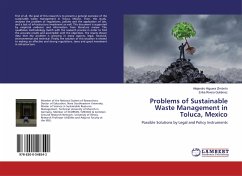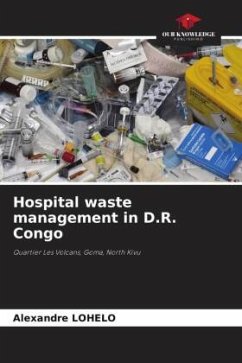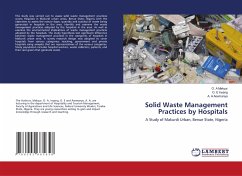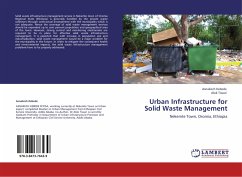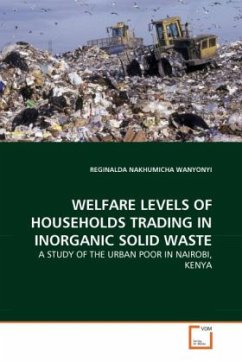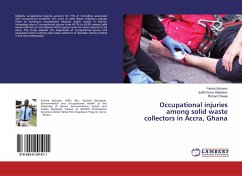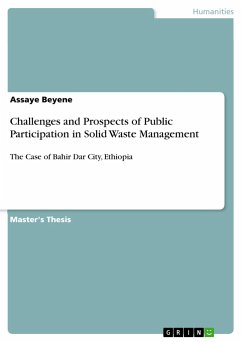
Challenges and Prospects of Public Participation in Solid Waste Management
The Case of Bahir Dar City, Ethiopia
Versandkostenfrei!
Versandfertig in 1-2 Wochen
47,95 €
inkl. MwSt.

PAYBACK Punkte
0 °P sammeln!
Master's Thesis from the year 2015 in the subject Sociology - Economy and Industry, grade: 3.83, Bahir Dar University, language: English, abstract: Solid waste management is becoming a major public health and environmental concern in urban areas of many developing countries, including Ethiopia. Bahir Dar is one of the cities in the country for which solid waste management is a problem. The main objective of the study is to investigate the challenges and prospects of public participation in solid waste management. The study area has nine sub cities. Simple random sampling was used to select two...
Master's Thesis from the year 2015 in the subject Sociology - Economy and Industry, grade: 3.83, Bahir Dar University, language: English, abstract: Solid waste management is becoming a major public health and environmental concern in urban areas of many developing countries, including Ethiopia. Bahir Dar is one of the cities in the country for which solid waste management is a problem. The main objective of the study is to investigate the challenges and prospects of public participation in solid waste management. The study area has nine sub cities. Simple random sampling was used to select two subcities and one zone from each selected subcity. Finally, systematic random sampling was used to select 271 respondents. The survey data was collected by using structured interview. Qualitative data were collected through semi-structured interviews, focus group discussion and observation. Descriptive statistics, ttest and chi-square test were used to determine an association between the dependent variable and the explanatory variables. The ordered logistic regression model was used to identify major factors that affect public participation in solid waste management. The survey result showed that the community can play a great role for better management of solid wastes by putting wastes in containers (38%), participate in waste management activities (34%), pay money for waste collectors (21%) and sorting wastes (7%). The majority of respondents (68.63%) replied that community conversation, awareness creation (22.88%) and enforcement mechanisms (8.49%) are better strategies for letting the community participate in solid waste management. The empirical evidence indicates a significant positive impact of awareness, rules & regulations and social participation on public participation which has a positive impact on solid waste management, being significant at 5%, less than 1% and 5% of significance level, respectively. This implies that the major factors that hinder the public from participating in solid waste management are low awareness, low social participation and low implementations of rules and regulations. To conclude, public participation in solid waste management is poor because the government is giving insufficient attention to the topic (limited budget, poor follow up and poor implementations of rules, regulations & strategies).Therefore, the concerned government bodies should give much emphasis for public participation because the communities have the skills, knowledge, resources and expertise to solve their own problems - given the chance to do so.



